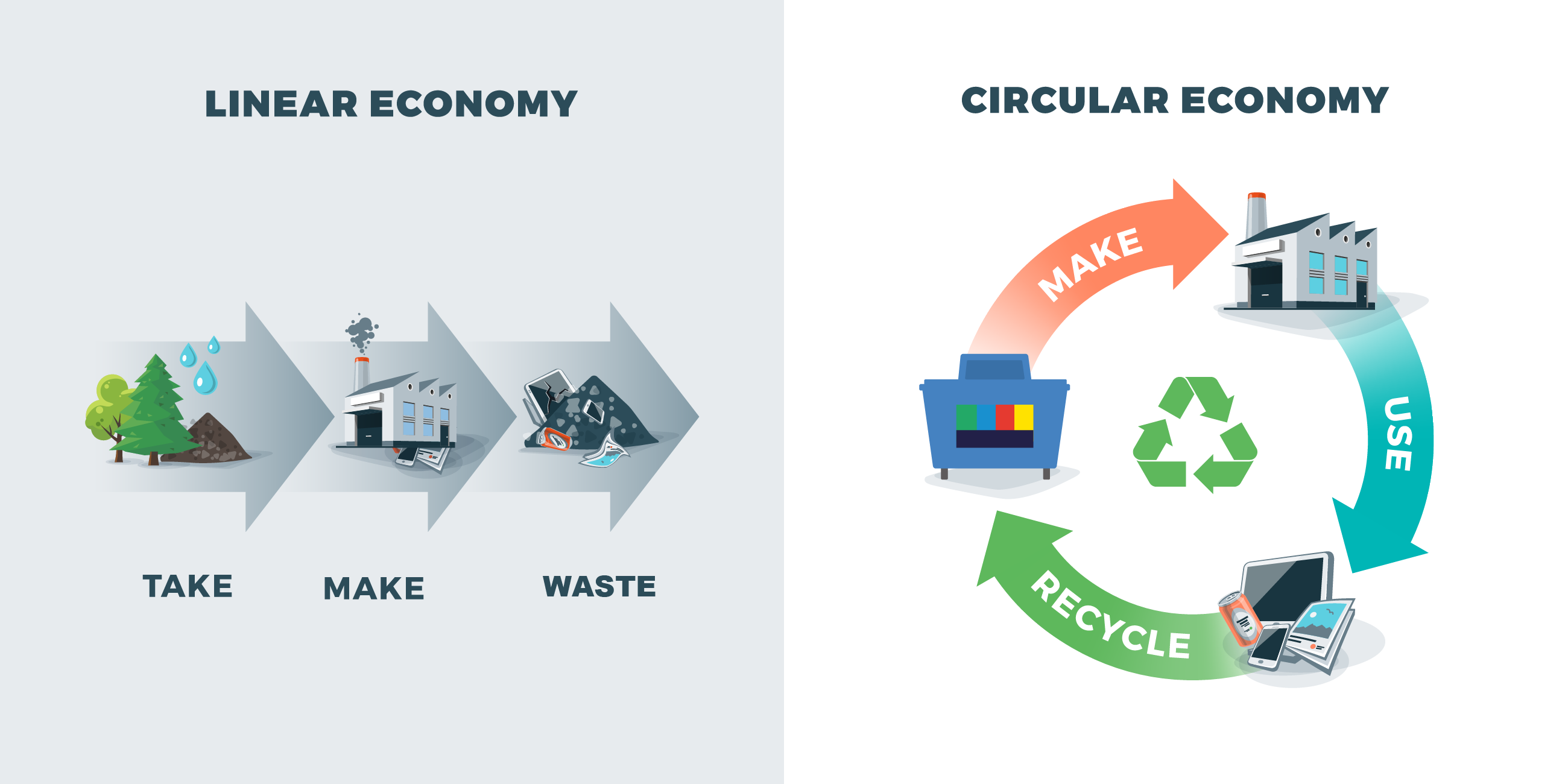Circular Economy
Reducing waste and adopting a circular economy approach will benefit the environment and create economic opportunities.
As a small city state, Singapore has always been aware of the need to balance economic development and environmental sustainability.
Growing our economy consumes energy, water and other resources which we lack, and generates sewerage and solid waste that must be disposed of. These are challenges for any country, but especially so for Singapore where resources and land are scarce. Our only landfill, the Semakau Landfill, will be filled up within years at our current rate of waste generation.
To overcome these challenges and continue to grow sustainably, Singapore must adopt a circular economy approach. This requires a shift from the ‘use and throw’ mentality, to one where resources are re-used for as long as possible.

What is the circular economy?
A circular economy is an alternative to a traditional linear economy (take, make, waste). It seeks to reduce waste, recovers resources at the end of a product’s life, and channels them back into production, thus significantly reducing pressure on the environment.

Why a circular economy approach is important
As well as creating new opportunities for growth, a more circular economy will:
- reduce waste
- drive greater resource productivity
- deliver a more competitive economy
- position Singapore to better address emerging resource security/scarcity issues in the future.
- help reduce the environmental impacts of our production and consumption in both Singapore and abroad
Extended Producer Responsibility
Singapore will introduce policies to encourage sustainable production and consumption.
This includes Extended Producer Responsibility (EPR), starting with electronic-waste, which we will introduce by 2021. Apart from e-waste, we are studying the feasibility of extending EPR to packaging waste.
When producers are responsible for the ‘end-of-life’ of their products, they will be more incentivised to design products that are easily recycled, or come up with innovative circular business models to close their waste loop.
Supporting and partnering industries
A research grant call under the “Closing the Waste Loop Initiative” was launched for the sustainable design of plastic materials. The goal is to allow for plastics to be more reusable, easier to recycle, and to extract value from waste plastics. By encouraging collaboration between the institutes of higher learning, research institutes and businesses, we will be in a stronger position to introduce fresh approaches to solving the longstanding plastic challenge, and capture the innovation value.
https://www.towardszerowaste.sg/circular-economy/
